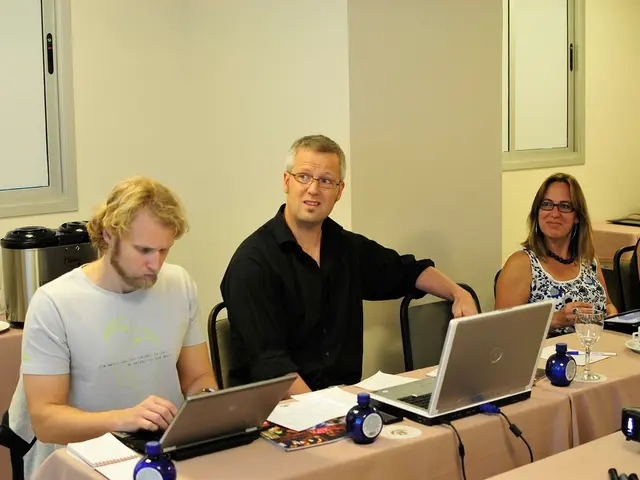German Companies Struggle with Innovation
In today's competitive business landscape, having innovative ideas and products is key to staying ahead. Unfortunately, a recent survey indicates that many German companies are struggling with this very issue. The willingness to innovate has hit an all-time low, and there are two primary hurdles causing this problem: a shortage of skilled workers and high bureaucratic requirements.
According to the German Chamber of Industry and Commerce (DIHK), these issues are causing concern, particularly regarding Germany's position as an attractive business location. This year, the country's innovation willingness has fallen to its lowest level since the first survey in 2008.
The Struggle with Skilled Workers
The survey reveals that nearly three-quarters of the over 2,200 companies surveyed feel held back by limited personnel capacities. This shortage of skilled workers is the number one obstacle to innovation. The DIHK views this trend as a warning signal and a potential threat to Germany as a thriving business hub.
Bureaucracy and Innovation
The second hurdle identified by the surveyed companies is the high bureaucratic requirements. Over two-thirds of the companies complain that red tape is holding back their innovations. In fact, many companies are even considering reducing their innovation activities in the coming months.
Addressing the Shortfalls
To overcome these obstacles, several strategies can be employed. Digitalizing startup administration, simplifying the tax system, and investing in innovative vocational training programs are just a few potential solutions. These measures can help reduce bureaucratic requirements and alleviate the skills shortage, ultimately leading to a more innovative environment for German companies.
The Importance of Innovation
As DIHK Managing Director Martin Wansleben noted, the country needs new ideas and products more than ever to get back on its economic feet. By addressing the current lack of innovative ability, Germany can position itself as a global leader in innovation and attract top talent from around the world.
Enrichment Insights
To fully address the skill shortage and high bureaucratic requirements in Germany, the following strategies can be implemented:
- Digitalize startup administration
- Simplify the tax system
- Enhance talent attraction strategies
- Promote climate tech adoption
- Establish proactive, innovation-friendly regulation
- Address the skills shortage through innovative vocational training programs
- Modernize public administration with digital solutions
- Invest in lifelong digital learning opportunities
- Recruit international talent through targeted efforts and partnerships with educational institutions.
By implementing these strategies, Germany can significantly improve its innovation environment and foster a more innovative culture across its businesses, ensuring long-term economic success.







